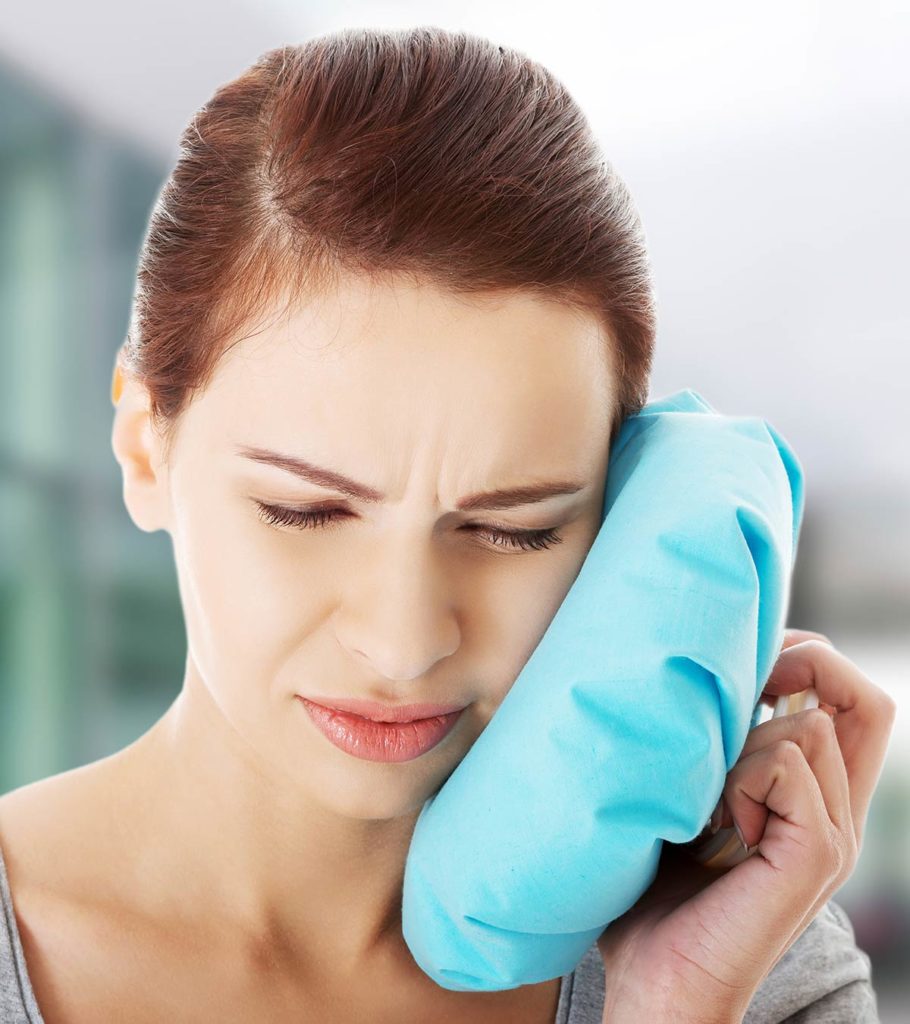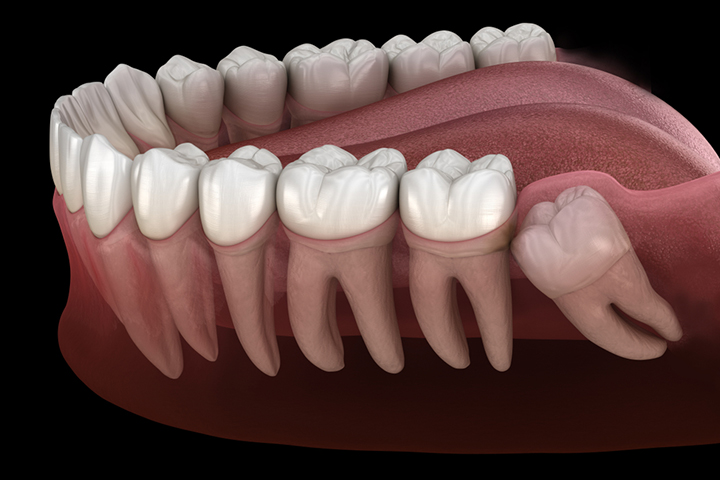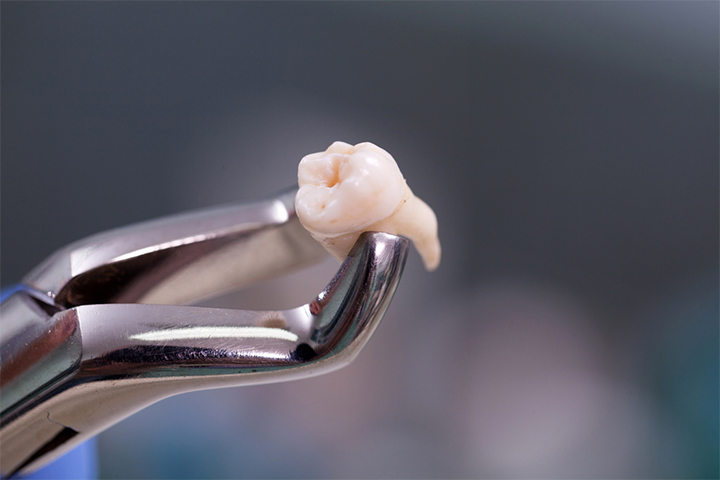Even if you’re lactating, you may need to see a dentist for wisdom tooth extraction in case it is causing you trouble. However, removal of the wisdom tooth during breastfeeding should be approached with caution. The reason behind it is that the drugs and medicines used during or after the extraction may get into your infant’s system through your breast milk.
Read on to learn about wisdom tooth extraction and dental care while breastfeeding.
What Are Wisdom Teeth?
Wisdom teeth are the third or rearmost molars. We have four wisdom teeth i.e. two each in lower and upper jaws. The teeth are commonly known as ‘Wisdom’ teeth since they erupt in growing ages from 16 to 21 years. When the wisdom teeth erupt in alignment with the remaining natural teeth, they help break and chew hard food. However, often, wisdom teeth erupt partially or impact the jaw bone. This increases chances of food or plaque accumulation, resulting in decay and pain and warranting the need to remove them.
Causes Of Wisdom Teeth Removal In Nursing Mothers
Hormone changes occur after delivery that affects gums surrounding the wisdom teeth and often result in inflammation and swollen and painful gums. Also, plaque accumulation around the wisdom teeth can infect them and make you suffer from acute tooth pain. So, it becomes necessary to remove the infected wisdom tooth while nursing your baby (1).
Symptoms That Warrant Wisdom Teeth Removal In Nursing Mothers
What signs stress the need for wisdom teeth removal while breastfeeding? Here are symptoms that make it inevitable to remove wisdom teeth.
- Chronic tooth pain
- Excessive tooth decay
- Cysts or fluid-filled sacs surrounding wisdom tooth
- Discoloration of teeth
- Pain and swelling of cheek
- Bad breath
- Fever
- Repeated infection in the soft tissues near the wisdom tooth
- Damage to the surrounding teeth
- Tumors
- Gum disease (2)
Sharing her experience of getting her wisdom tooth removed while breastfeeding, a blogger and nursing mother recollects, “Previous X-rays had shown that all my wisdom teeth were impacted. The area around the tooth was swollen and hurt to brush/chew/ whatever, but I figured it was due to the tooth erupting from the gum. I already couldn’t eat properly and needed the first of many paracetamol (in days to come) just to get through the day. I hardly take paracetamol even though it’s safe during breastfeeding because I didn’t want to risk affecting Lè meimei (the baby). However, the pain soon got excruciating. To the point that even a bristle of my toothbrush could trigger a head-jaw-cheek numbing pain whenever I brushed. By the time I finished an entire tab of paracetamol, I came to the conclusion that it had to go (ⅰ).’’
Depending on the condition of your wisdom tooth and oral health, dentists decide when it is the right time to remove it.
Wisdom Teeth Removal While Nursing
Even though a majority of pharmaceutical medications and anesthetics do not affect breastfeeding, you may need to wait for about eight to 12 hours before a feed after you opt for treatment. You can also consult a qualified lactation consultant (IBCLC) regarding which drugs are appropriate and safe to have while breastfeeding.
1. Surgery
Surgery is the most effective way of removing wisdom teeth while breastfeeding. Consult your surgeon or anesthetist regarding how soon the effect of anesthesia will subside after the teeth removal or surgery. Also, make sure you feed your newborn before you go for the surgery. Have some spare breastmilk in the refrigerator.
2. Pain relievers
You may need pain relieving medicines to get relief from the pain post surgery. Consult your dentist to have painkillers that will be safe to have while infant feeding. Most painkillers are safe to have while nursing but confirm the medication safety with your dentist. The dentist may prescribe Nurofen or Panadol to help in pain management. Make sure you breastfeed your baby before you take the painkiller.
3. Proper rest
After the dental surgery, you may feel weak and tired, and you may not be in a position to get up and feed your newborn. Take rest, and make sure you have people to bring your dear little one to you for the feeds.
4. Appropriate diet
For post-surgery dental care, it is recommended to eat nourishing, soft foods. Avoid having extremely hot foods and drinks. Initial few days after surgery, have liquids, such as soups, milkshakes, yogurt, and puddings. Avoid foods, such as nuts, popcorns, rice, sunflower seeds, and other foods, that accumulate in the dental sockets. To ensure proper postoperative care and avoid dental complications, consult your dentist to follow a safe and appropriate diet (3).
Sometimes, the solution to the discomfort caused by a wisdom tooth is its extraction. If you wish to undergo wisdom teeth removal while breastfeeding, consult your dentist and your doctor to understand if it is the right option. Generally, teeth extraction while nursing is considered safe, provided you ensure ample time between infant feeding and medication intake. However, your health advisors can make the best decision based on the accompanying symptoms, your dental health and hygiene, and whether it will affect maternal health and food intake.
Key Pointers
- Extraction of wisdom teeth is a common oral procedure to deal with tooth decay or pain.
- This procedure is usually safe for lactating women with short recovery time.
- It is advisable to consult a dentist and a lactation consultant before the procedure to ensure the safety of both the mother and the baby.
- However, feeding the baby before the procedure and storing breastmilk can help during and after the procedure.
- Appropriate diet (including liquids), rest, and medicines (for pain) aid in a speedy recovery.
Worried about having an impacted tooth removed? Learn how a liquid-only diet can affect you and your nursing baby. Get the answers you need in this informative video.














